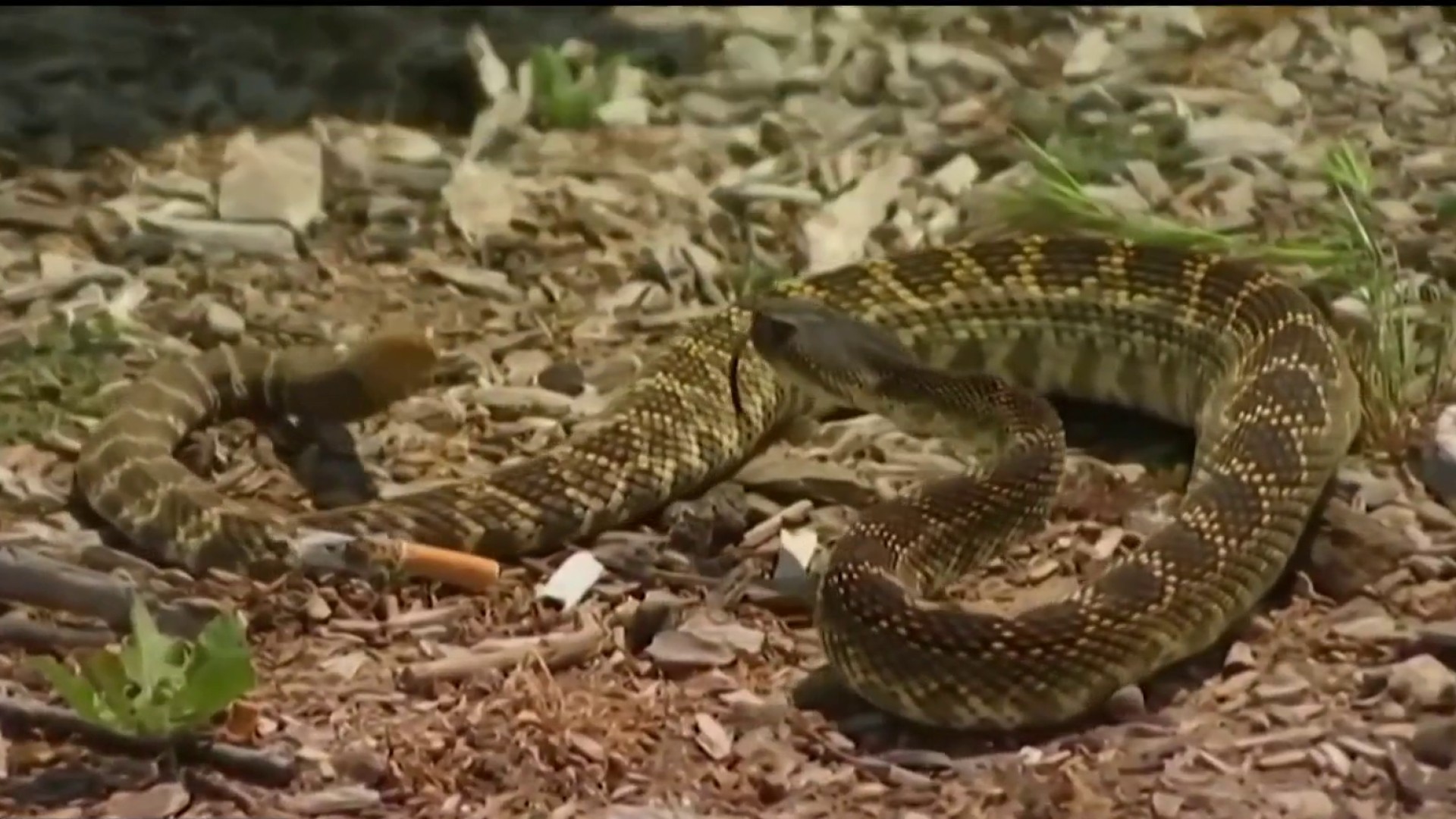A hiker was bitten by a rattlesnake Wednesday in Carmel Valley.
The victim was airlifted from a trail behind Ocean Air Elementary School and was later lowered to an ambulance that transported her to Scripps Memorial Hospital as a "code 10" patient, according the San Diego Fire-Rescue department spokesperson Monica Munoz.
The department's operations manual list examples of other "code 10" transports as patients in acute status or "those with CPR, any major trauma, emergency cardioversion, anaphylaxis or other shock states."
Relevant content:
Get top local stories in San Diego delivered to you every morning. >Sign up for NBC San Diego's News Headlines newsletter.
Snake wrangler Bruce Ireland used be part of the San Diego County Sheriff's Department’s search and rescue team. He would respond to these types of situations.
Rattlesnake bites are rare and dying from one is even more rare. Ireland said only four people die out of the 8,000 bites across the country every year.
“Time is tissue,” he said. “I always tell people, 'The longer you wait, the more damage could be done by that venom.'”
Ireland said California has 46 different types of snakes, but the only ones that are dangerous to humans are rattlesnakes.
Many locals know that San Diego County has rattlesnakes, but some visitors are not aware.
“Had I known that, we probably would not have come here today,” said Lisa Whittington, a visiting hiker. “I'm glad we found that out at the end of this excursion.”
What to know before hitting the trails
Adults steering clear of snakes on trails is one thing. But staying aware with children and pets around too can easily become overwhelming.
Some tips include keeping children in sight and not letting them wander off the trail, watch where everyone steps and ditch the headphones to better hear the surroundings.
Lastly, never let a dog off his or her leash.
“Dogs are very curious animals,” Ireland said. “The first thing they do when they smell or sense something is they put their nose right up to it — and that snake doesn't know that. It's not trying to kill it, so its first instinct is going to be to bite your dog.”
If you do get bit, there are so many factors that weigh into how much time you have to get help. Your body weight, the location of your bite, and even how much venom that snake decided to release all play a part.
Ireland said one thing is always for sure — go to the hospital.



